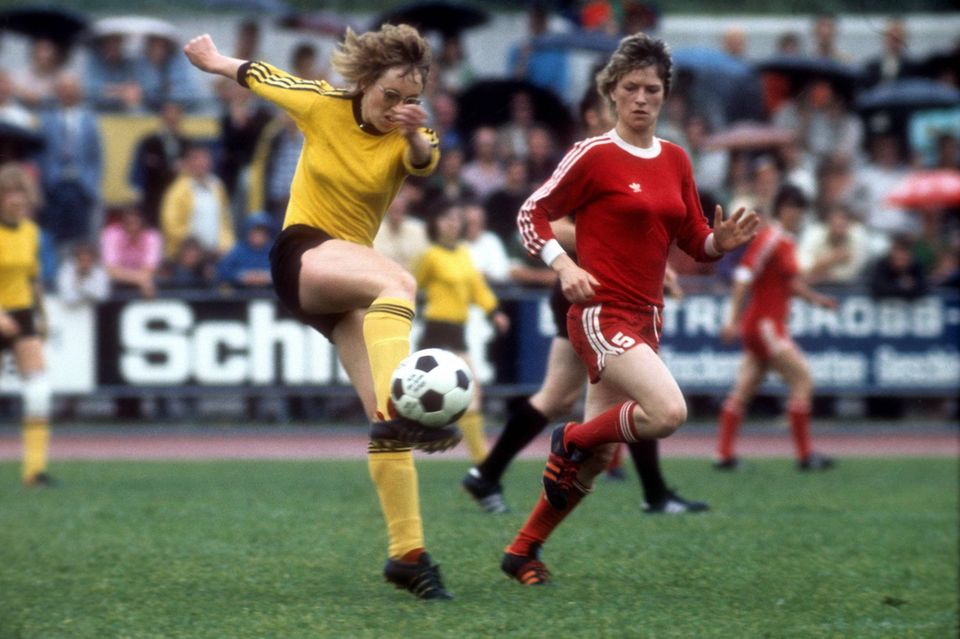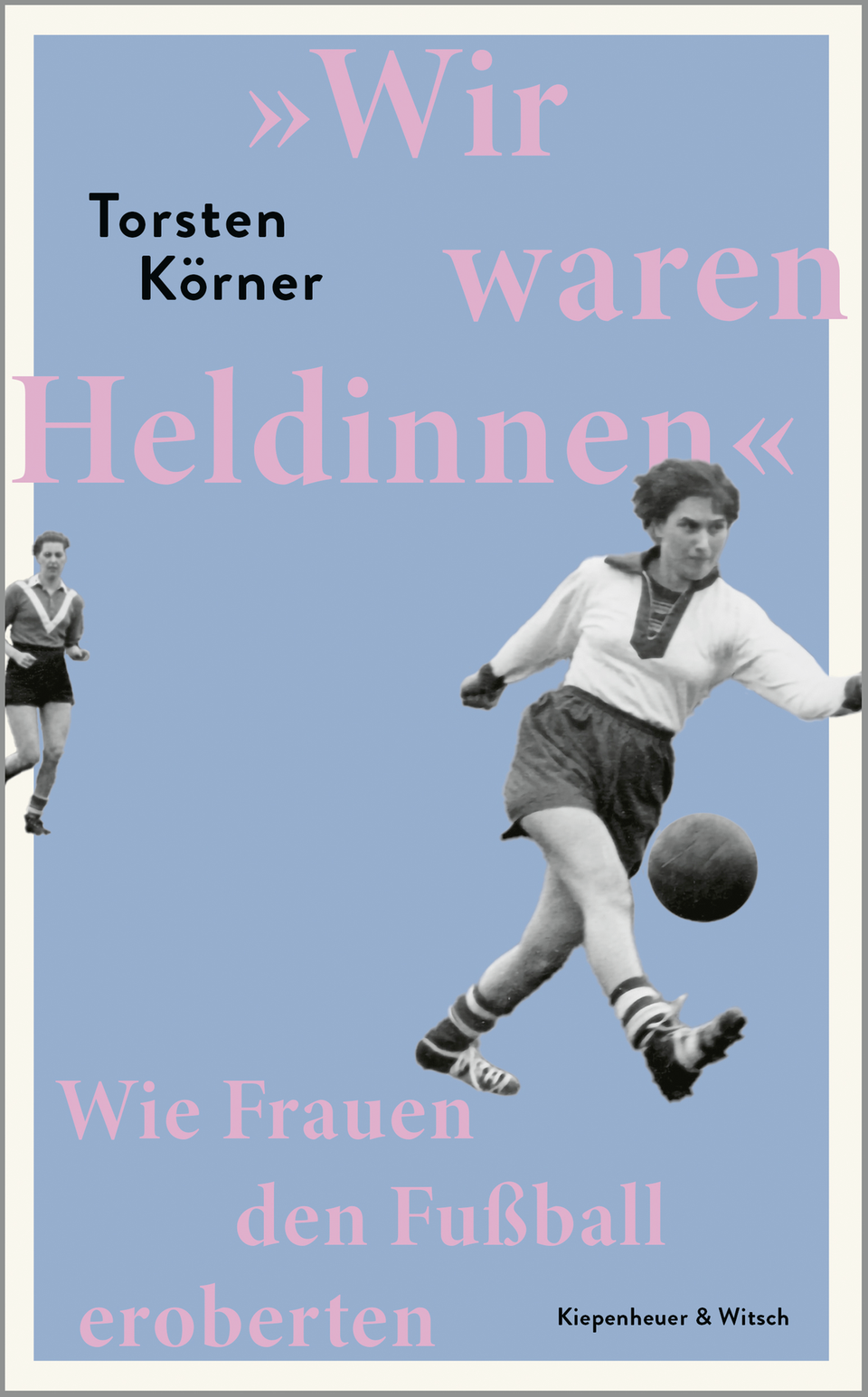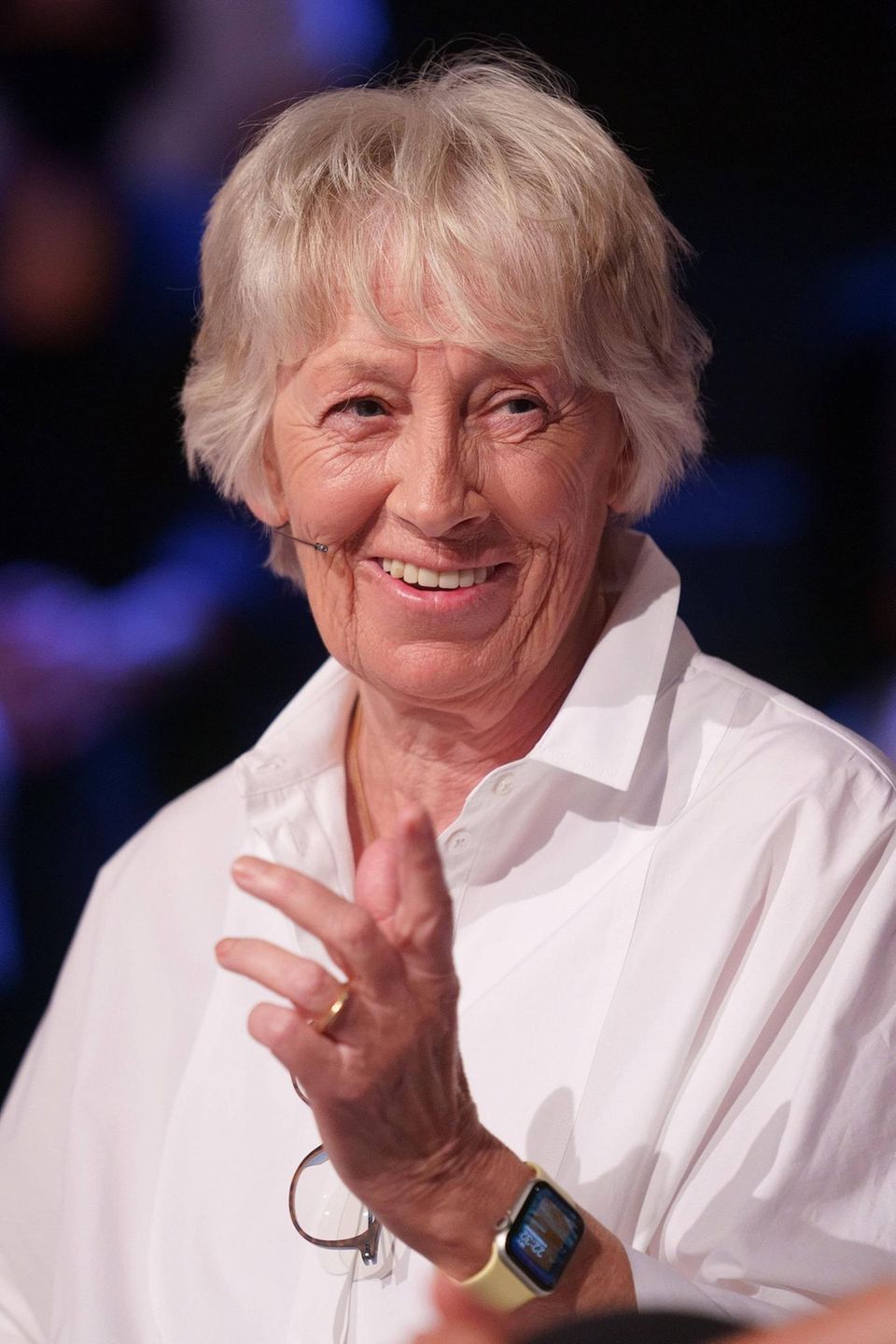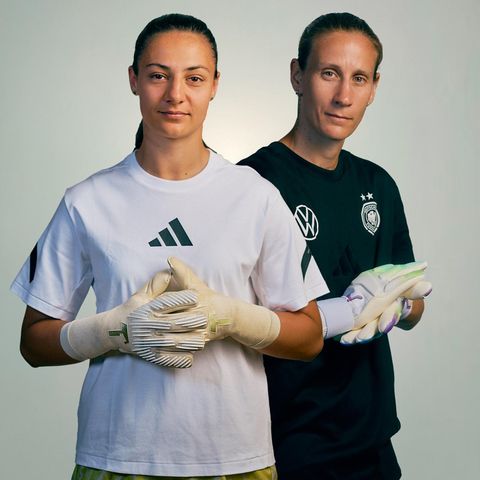Women’s European Championship
DFB pioneer: “Most of the time it said: girls have no place in football!”
Anne Trabant-Haarbach played in the first team of women of the DFB. Here she tells of the fight against macho -like officials – and why she had to sell waffles to drive to the World Cup.
Ms. Trabant-Haarbach, this Friday the German footballers start the European Championship against Poland. The stadium is sold out, the game is broadcast live, it is expected to be an audience of millions. When they played the first official international game in DFB history on November 10, 1982, only 5000 people were in the stands and there were no live pictures. Are you proud of the development that football has taken since then? Or bitter because they were given less attention at the time?
I see it positively. The girls would not get such a large stage today if my generation had not fought for women’s football in Germany at the time. However, I believe that many players do not even know how many resistance we had to overcome in this world of men that football was back then.
To person
Anne Trabant-Haarbach, 76, grew up in Emlichheim on the German-Dutch border. As a young girl, she played football on the street – but exclusively with boys. It was rejected by the local sports club. Trabant-Haarbach found back to football through her sports studies in Mainz. At Bonner SC and Bergisch-Gladbach, she was the outstanding player and celebrated numerous title winnings. She also led the DFB women’s team when this played his first international match in 1982 and won 5-1 against Switzerland. After her player career, Trabant-Haarbach worked as a trainer and sports teacher
By 1970, women’s football had a difficult stand in Germany. The DFB threatened to clubs with sanctions if they found women teams. How do you explain the discriminatory attitude of the DFB?
In many parts of society, there was an arch -conservative understanding of roles in many parts of society. Football was men’s sport, an area that was to be protected from women. Hermann Neuberger, who became President of the DFB in the mid-1970s, even said publicly that he prefers to see women playing tennis than watching them football. But my teammates and I did not let myself be put off by that. Our goal was to tear down the wall in the heads of the men.
They were born four years after the end of the Second World War. How was her way to football, where there was actually no place for her?
The World Cup victory in 1954 was a key experience for me. With us in the street everyone had gathered around a black and white television to look against the final against Hungary. And then our team wins the game. This emotional explosion, this joy torn me as a little girl. I wanted to do that too: do something that inspires people.
I wanted to play football like the men on TV
And it didn’t bother you that the so -called heroes of Bern were all men?
No, I didn’t notice it at the time. I was emotionally attached. A young girl who wanted to play football like the men on TV.
They grew up in Emlichheim, a small town on the German-Dutch border. Did you know other girls who had a dream similar to them?
I only kicked boys throughout my childhood. Unfortunately only on the street and not in the club, at SC Union Emlichheim. I was only allowed to watch. If the trainer had a particularly good day, he let me join the boys. But mostly it was said: girls have no place here!
What did you hold out?
My love of football was larger than my frustration for a long time. But when I was 13 or 14, it tipped it. I was tired. I no longer wanted to endure these constant rejections. I played handball and got success experiences there.

How did you find back to football?
About sports studies. In 1969 I took part in a small team in Mainz, a year later I switched to TuS Wörrstadt, where the level was higher. In Wörrstadt I also got the feeling that it could still be something with football and me. So that the dream I had as a girl may be true.
We are now talking about West Germany in the 1970s. How do you have to imagine these pioneering years of women’s football?
There were no structures that we could have fallen back on. We had to regulate everything ourselves. So agree with other teams, organize referees – and, very important: fight for training times. The men always had priority in the clubs. It happened that we were only allowed to train from nine in the evening or in poorly illuminated places because you wanted to save the money for floodlights.
After all, the DFB opened and allowed a league operation in 1974.
Because the DFB had finally understood: the women don’t give up, we won’t get rid of them anymore.
The inertia of the football system is disturbing
Your career started driving in these first league years. They switched to Bonner SC and then to SSG 09 Bergisch Gladbach, where they won numerous German championships. There were now national leagues in Germany, but still no women’s national team. Why not?
Equality in football is a long, rocky path. Til today. Unfortunately we have to think in decades and not in years. Because the DFB only moved in slow motion, no national team was sent to the unofficial World Cup in Taiwan in 1981. The DFB had forwarded the invitation letter for the World Cup to Bergisch-Gladbach. Then we said to ourselves: Well, then we just drive with the club team to World Cup.
Who paid the trip?
Our manager in Bergisch Gladbach drove through the region and collected funds from sponsors. We players also helped. For example, we baked waffles and then sold them at the weekly market. Every mark was important.
Sounds like a story from a completely different age.
It was absurd. The inertia of the football system is disturbing. In other social areas such as art, culture, science and politics, they were much further in terms of equality in the 80s. Only football was from the day before yesterday.
A TV commentator once said: “There is a lot of sex in the game today.” Because we won 6-0
This also affected the sports reporting. It was interspersed with sexist allusions. Max Merkel, for example, wrote in the Bild newspaper: “The women even have an advantage. The ball is easier to stop with a breast of women.” How did you endure the joke of the Men’s Guard Republic?
Listen away, and if that didn’t work: suppress! It was not funny and often just stupid. A TV commentator once said: “There is a lot of sex in the game today.” Because we won 6-0.

In the first international match directed by the DFB in November 1982, they led the German team. What are you memories of this historical day when it went against Switzerland in Koblenz?
At 6:00 am I was ringing from bed by a radio journalist because he wanted to have an interview for the morning program. Maybe he should have called one of my teammates better, because I think many of us didn’t sleep. We were all very nervous. We knew: history is written today. The moment had finally come for which we fought for so long. We won 5: 1, but that was irrelevant. Our victory was that this international game had received its blessing from the DFB.
They ended their active career in 1983 and then worked for many years as a trainer-but under conditions that were not partially comparable to those of men’s football. If you look back on your decades as a pioneer: Did this work give you more energy or robbed you of?
I will probably never make my peace with the fact that the men have so much easier in football than we women. But I am happy that I was allowed to be part of a movement that changed a lot in German sport. Our generation of players has written history. I’m 76 now and can say: it was worth it.
Source: Stern
I am Pierce Boyd, a driven and ambitious professional working in the news industry. I have been writing for 24 Hours Worlds for over five years, specializing in sports section coverage. During my tenure at the publication, I have built an impressive portfolio of articles that has earned me a reputation as an experienced journalist and content creator.





